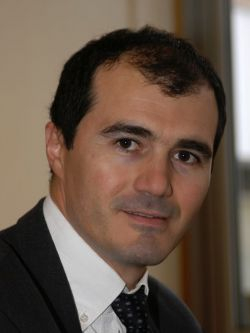
Jean-Louis Stasi
President of Schneider Electric Russia, CIS Senior Vice President
The commercial construction industry worldwide is undergoing profound changes, influenced by regulations that favor low energy buildings and by pressure from two groups: business operators who want to reduce their energy bills and users who are continually looking for better service and greater comfort. These issues are of current interest in Russia.
The demand for comfort, ambitious building programs, an explosion in IT and associated electricity consumption — it is little wonder that the construction sector's average annual consumption of energy is close to 400 kilowatt hours of primary energy per square meter heated. Today construction is the biggest energy consumer of all economic sectors and accounts for 43 percent of energy usage worldwide. Faced with the need to reduce carbon dioxide emissions and with rising energy costs, we are being forced to make better use of our energy and reduce the amount we use. We need to do more and do better with less.
Today's buildings house an ever-increasing number of networks: electricity distribution, IT, lighting management, heating function controls, ventilation and air conditioning (HVAC), security monitoring — applications pile up, generating endless protocols and requiring communication between many different parties. As far as Schneider Electric is concerned, the only one way to optimize the management of a building is to have all these systems speaking as one.
This is why convergence is a top priority. Stakeholders' objectives, systems, players and methods all need to be converged. Convergence allows systems that have been designed independently to talk to one another via an occupant's information system, and that shared control means all these open systems and their interactions can be managed as a single unit.
Our approach is active energy management via united Building Management Systems (BMS) that enable native integration of all building's systems. The Hive, Schneider Electric's global headquarters, is an example of the very best that can be done in today's world. Equipped with our own technologies and the first building in the world to be ISO 50001 certified, the Hive is currently a benchmark for smart buildings everywhere.
To optimize management of the Hive, Schneider Electric has persuaded all the systems in this 35,000 square meter building to talk to one another. All the building's energies and systems share the same architecture — EcoStruxure — and they are all managed by a shared control system: Building Management System Continuum, which integrates all systems — HVAC control signal, video surveillance, access control, intruder detection, electricity and heat meters, etc. — through a shared IP network.
We have overseen an increase of interest by our Russian customers for green and smart building technologies in recent years. Today, with the need to sharply reduce energy consumption in Russia by 2020 (according to the federal law on energy conservation and increasing energy efficiency), Russian government and businesses are seeking the best practices of energy management. Effective building management is key to fulfilling this ambitious energy efficiency task for Russia.
A Message from The Moscow Times:
Dear readers,
We are facing unprecedented challenges. Russia's Prosecutor General's Office has designated The Moscow Times as an "undesirable" organization, criminalizing our work and putting our staff at risk of prosecution. This follows our earlier unjust labeling as a "foreign agent."
These actions are direct attempts to silence independent journalism in Russia. The authorities claim our work "discredits the decisions of the Russian leadership." We see things differently: we strive to provide accurate, unbiased reporting on Russia.
We, the journalists of The Moscow Times, refuse to be silenced. But to continue our work, we need your help.
Your support, no matter how small, makes a world of difference. If you can, please support us monthly starting from just $2. It's quick to set up, and every contribution makes a significant impact.
By supporting The Moscow Times, you're defending open, independent journalism in the face of repression. Thank you for standing with us.
Remind me later.





